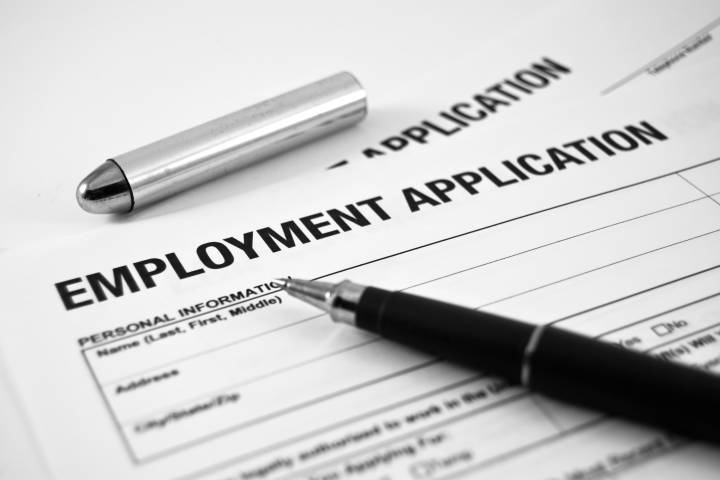Employers Should Require a 2.0 GPA for Hiring Teen Workers

CON (4 arguments)
Define:
Employers- all employers of all industries
POIs:
1. How is someone with a 1.99 GPA is significantly different than someone with a 2.0 GPA and thus shouldn’t be employed?
2. Why should the bar be set at 2.0? Why not 2.5, or 3.0?
In this economic downturn, many adults are taking jobs once thought of as minimum wage teen jobs. This means teens must compete with adults for the same jobs and requiring the teen to have an additional qualification is unfair and discriminates on the basis of age. It is a form of reverse age discrimination.
A study by the Employment Policies Institute states that the summer teen employment outlook looks bleak. According to the Bureau of Labor Statistics, only 32.6 percent of teenagers ages 16 to 19 were employed in 2008. It was a historic low, down from 45.2 percent in 2000. This year, all of the economic indicators point to the teen unemployment rate rising even further. And that means more bad news for youths looking for work because now they will be competing with adults for the same jobs. As New York Times columnist Bob Herbert noted: “Good jobs are hard to find for most categories of workers... One of the results has been that older men and women have been taking and holding onto jobs that in prior eras would have gone to young people.”
GPA tells employers nothing of an applicant’s ability to do the job and is an unnecessary and unhelpful as a predictor of an applicants’ qualifications. The GPA takes into account all of the student’s courses. The knowledge required to do well in many of the courses that make up a GPA are totally irrelevant to being a competent employee. For example, if an applicant is applying to McDonalds, why should a bad grade in music, art, history, foreign language or science matter? A student’s mastery of any of these subjects has no bearing on his performance as a fast food employee. Rather, employers should look at an applicant’s coursework that has a direct bearing on the job to be performed, like looking at a math grade for a cashier, or an English grade for a writing position. Employers should only be interested in a teen’s class work that has a direct bearing on the job for which that teen is interviewing, not an overall evaluation.
A 2006 survey by Collegegrad.com found that only 6% of employers thought that a job candidates’ GPA was the most important piece of information about an individual. The survey found that the interview and work experience were ranked higher than GPA when determining an applicant's aptitude. Indeed, an employer has many other more equitable and telling ways to judge a teen job applicant, such as recommendations, sample work product, grades in directly-related classes, challenging classes taken, other work experience, relevant extra-curriculars, and interview performance.
Naturally, Asian students and Caucasian students with more money and educational opportunity tend to score better on standardized tests and grade-wise then African American student or Hispanics with less opportunity. Once an employer asks for the applicant’s GPA, the employer can use this number to rank applicants and to dismiss those with lower GPAs. Since minorities on average have lower GPAs, this will put them at a disadvantage in the hiring process.
The Nation’s Report Card 2005 Transcript Study surveyed U.S. high schools and found in 2005 the average GPA of Asians was 3.16, whites, 3.05, Hispanics, 2.82 and African Americans, 2.69. Thus, an employer asking for GPA information from job applicants opens the door to discriminating against lower GPA candidates, even if they meet the 2.0 threshold, if we are going to be basing employment on GPA. And since African Americans and Hispanics have lower average GPAs, this could lead to racial discrimination in employment practices.
This could result in higher unemployment among minorities, who already suffer higher unemployment rates than whites. According to the US Department of Labor, unemployment rates for African American high school students is 47% and Hispanics 40%, compared with Caucasians at 23%.
Why does a student have a low GPA? There could be many reasons: a student could come from a background of poverty that doesn’t support or encourage academic performance, the student could be taking very challenging courses that few students can master above the C level; the student could have an undiagnosed or untreated learning disability; the student could be going through a difficult home situation that distracts them from their schoolwork. Denying a teen the chance to earn money and gain relevant work experience through employment for any of these reasons is simply wrong and will lead to an unskilled workforce with no relevant work experience upon graduation from high school.
According to the Bureau of Labor Statistics, most teen jobs are minimum wage hourly labor in the food service industries. It is precisely the teenager who isn’t college-bound with a great GPA, who needs to have job experience in the real world the most. These are the future service industry workers who need work experience to get jobs when they graduate from high school so they too can be productive members of society. These are kids are not going to college; they are going right into the workforce when they graduate so they need the job experience the most.